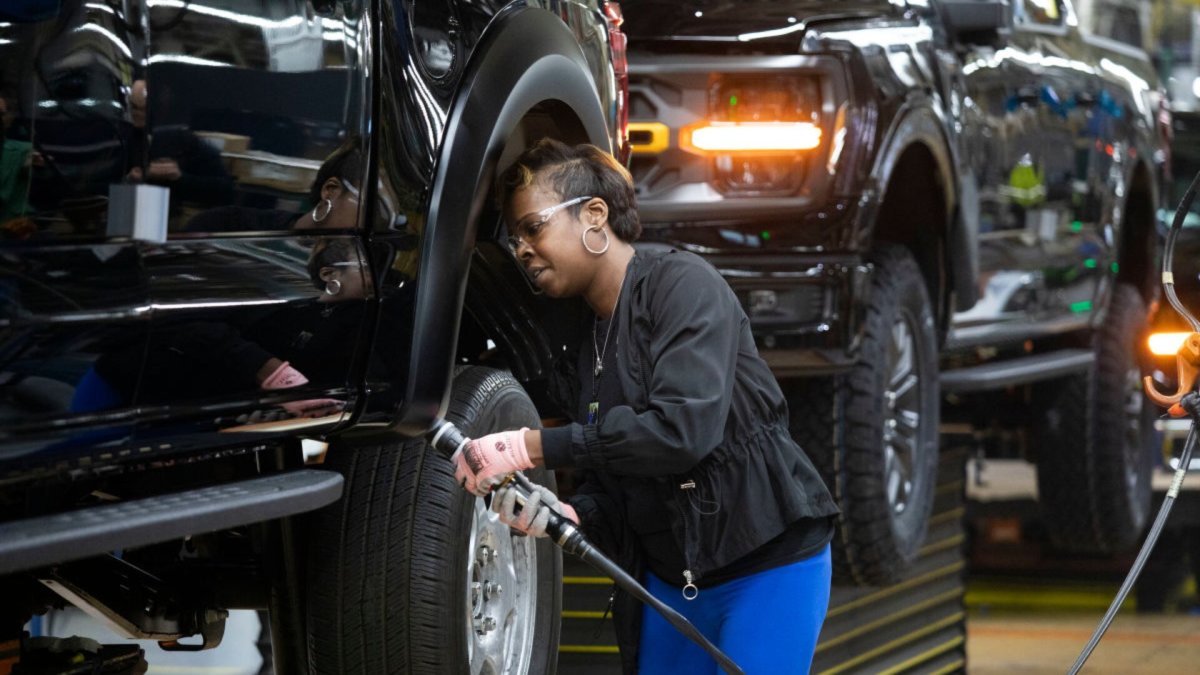Ford has found itself once again in a tough spot, as the car manufacturer has been forced to recall another large batch of vehicles due to a factory oversight.
On the flip side, Ford (F) is actually experiencing a fantastic year overall.
The company just reported unprecedented sales figures for the first half of the year, fueled by anxiety over tariff pricing and attractive promotional offers, which have led to record-breaking vehicle sales.
Still, this success was overshadowed by concerns during the second-quarter earnings call, which executives didn’t shy away from addressing.
As Chief Operating Officer Kuman Galhorta mentioned, “We’re not happy with how many recalls we’ve got going on or how many vehicles are involved. We’re committed to minimizing those costs.”
Since Galhorta’s statement, it feels like there’s a significant recall announcement almost every other week, with September 9 marking the date that over one million vehicles were impacted.
Just earlier this year, Ford anticipated that a recall affecting close to 700,000 vehicles would rack up costs around $570 million. Although that seems substantial, keep in mind that Ford has already issued more than 90 recalls this year!
This year, Ford celebrated a rather embarrassing record—its 89th recall was issued before July, beating General Motors’ overall annual record of 77 recalls set in 2014.

Ford Recalls Nearly 2 Million Vehicles Due to Faulty Rearview Cameras
On September 9, Ford declared a recall for about 1.9 million vehicles across the globe because of issues with defective rearview cameras.
The breakdown shows that 1.45 million vehicles belong to owners in the U.S., while 122,000 are located in Canada, and around 300,000 rest elsewhere in the world. Ford acknowledges over 44,000 warranty claims connected to this issue and confirms it’s aware of 18 accidents tied to these faults but has not registered any reported injuries.
The National Highway Traffic Safety Administration’s recall report submitted on September 3 estimates nearly 3% of these recalled vehicles may have this potentially hazardous defect.
This Recall Affects the Following Ford Models:
- 2015-2019 Lincoln MKC
- 2015-2017 Lincoln Navigator
- 2019 Ford Ranger
- 2015-2018 Ford Edge
- 2017-2019 Ford Econoline
- 2015-2019 Ford Mustang
- 2015-2017 Ford Expedition
- 2015-2019 Ford F-350 SD
- 2016-2019 Ford Transit
- 2016-2019 Ford F-550 SD
- 2015-2019 Ford F-250 SD
- 2015-2018 Ford Transit Connect
- 2015-2019 Ford F-450 SD
By the morning of September 9, Ford’s stock had dropped by 1.4% amidst the news.
Additional Reading: Ford Recalls Over 200,000 Vehicles Due to Serious Crash Risks
In separate news, Canadian auto parts company Magna International announced it’s recalling over 250,000 rearview cameras that are installed in select Ford and Stellantis vehicles, according to Reuters.
Remarkably, this recent recall concerning faulty rear cameras follows another recall just eight weeks ago when Ford called back over 200,000 vehicles due to a software issue that caused the rear cameras to malfunction.
Experts Warn: Ford’s Reliability is Diminishing
Reliability is a key factor for car buyers, making it no wonder that overseas brands like Toyota, Honda, and BMW have a solid footing in the U.S. market.
As per the Consumer Reports Reliability Index, Lexus ranks second, with Toyota in third, Honda in fourth, and Acura in fifth. Subaru clinches the top position.
Further Insight: Ford Motor Co. Faces Greater Challenges Beyond Just Tariffs
In comparison, Ford lags at a disappointing 13th place, with a predicted reliability rating of 44.
According to Consumer Reports, the problematic F-150 Hybrid has been rated as the least reliable model. Even worse, its reliability lags behind that of the already inconsistent F-150, experiencing persistent issues with its transmission and hybrid battery. The Ford Escape Hybrid is also considered among the least dependable models.
The reliability of the Ford F-150 Lightning electric pickup is below the average, and despite being on the market for four years now, improvements remain negligible.
As noted by Steven Elek, an expert in automotive data analytics from Consumer Reports, “EV technology is still quite young, and manufacturers are still fine-tuning their platforms and powertrains. However, it’s crucial to recognize the ongoing issues with traditional components, such as current infotainment systems and electronic features.”
Read More: Ford Motor Co. Struggles With Costly, Recurring Issues




















